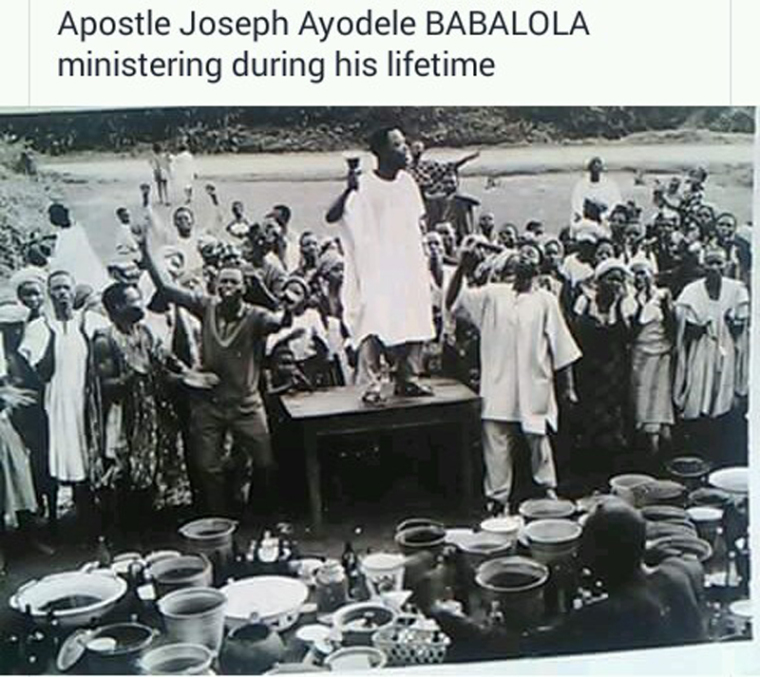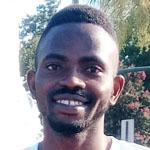
Church history is full of the wondrous works of God through men. For when God intends to save a people, he anoints and sends a man.
“Also, I heard the voice of the Lord, saying, whom shall I send, and who will go for us? Then said I, Here am I; send me.” (Isaiah Chapter 6 verse 8)
In the next few weeks, I will be writing about some West African generals of the faith.
The early years and calling of Apostle Ayo Babalola
The story of Apostle Ayo Babalola is one of absolute awe and wonder. He was born on the 25th of April 1904 at Odo-Owa, Ilofa, in present day Ekiti Local Government area of Kwara State, Nigeria. He was born to the family of Pa David Rotimi and Madam Marta Talabi Rotimi who were members of the Anglican Church.
Babalola started school at Ilofa and got as far as standard five but he left school to become a motor mechanic. He later joined the Public Works Department (PWD) where he worked as a Steamroller Operator.
It was while he was working as steamroller along Akure-Ilesha road in October 1928 that Babalola heard a loud voice telling him to leave his job. Some days later, he heard the same voice telling him to leave his job and start preaching the gospel. Babalola obeyed the voice and resigned from his job against the wishes of his boss.
Encountering angels
He was further instructed to seek the Lord in fasting and prayer. It was during this period of fasting that Babalola had an encounter with a man that appeared to him in a dazzling robe. The man told him of the persecutions he would face and assured him of God’s protection.
During this encounter, Apostle Babalola was given a bell and water. He was told that the bell would drive away evil spirits and the water was for healing. One of the hallmarks of Apostle Babalola’s ministry was that he often prayed on water and people would receive their healing after drinking the water.
Culturally relevant
During one of his encounters, an angel appeared to him and gave him a big yam which he ordered him to eat. The angel told him that the yam was the tuber with which God fed the whole world. One may wonder why the angel illustrated the word of God using yam and not bread as seen in the bible. It is simply because of the culture and civilization of the region Babalola was called to evangelize.
We all know Jesus- the word is the bread of life, but the people he was to preach to knew little or nothing about bread; but explain the word being a tuber of yam and they would instantly understand that. This is testament to the truth that the gospel is not a European construct, and that God can meet different tribes of the earth where they are without westernizing the gospel.
The ministry of Apostle Ayo Babalola
Apostle Ayo Babalola was instructed by God to go to Odo-Owa, his hometown to preach the gospel and to call for repentance. He was instructed to arrive in the town on a market day and to cover his body with palm fronds and paint himself with charcoal.
He entered the town in October 1938 and was instantly taken for a mad man. He started ringing his bell as he preached and called the people to repentance. He told the people that evil beasts would enter the town to destroy them unless they repent. They responded by beating him up. The villagers later armed themselves with guns and cutlasses in anticipation of the invasion of wild beasts.
However, God told Babalola to tell the people that he would not bring beasts again but instead, he would bring an epidemic within forty-five days unless they repent. Just as Babalola prophesied, smallpox broke out and within 3 weeks, about 300 people died. Those who repented were saved. He went around praying for the sick and they were healed.
Oke-Oye revival
One of the hallmarks of Babalola’s ministry was the Oke-Oye revival. This revival began when Babalola raised a dead child back to life. The news broke all over the town and people came to Babalola to hear the gospel and to be healed.
Within 3 weeks, one hundred lepers, sixty blind people and fifty lame persons were cured. Many lunatics were also cured. Many idolaters and Muslims gave their lives to Christ. The prophet prayed for a stream called Omi Ayo (Stream of Joy) and as many as drank from it were healed.
Babalola also took the revival to other cities and anywhere he went, souls were saved, the sick were healed and the oppressed were set free. In March 1932, he was sentenced to jail for six months in Benin City for preaching against witchcraft.
The prayer life of Apostle Ayo Babalola
Without doubt, it is intense prayer that births great revivals. If we do not tarry in the upper room, the wind of revival will not come. Apostle Ayo Babalola was a man of prayer. It was his custom to go up to the mountains to fast and pray for many days. According to some disciples, Babalola could pray non-stop for 7 days.
The life of a prophet
The life of a prophet is a strange one even to the prophet himself. Why would John the Baptist go into the wilderness? Why did he eat locusts? Why would God tell a prophet to prophesy to Israel naked?
The prophet is a fool to the world but a joy to heaven. He is bold, he sees possibilities where others only see failure, because he sees the end of a matter even from the beginning, he glides confidently like the eagle that he is, even through the storms of life.
Legacy
Apostle Ayo Babalola founded Christ Apostolic Church (C.A.C). The C.A.C believes that the spiritual power bestowed on Babalola placed him on equal level with Biblical Apostles like Peter, Paul, and others.
He was one of the prophets that God gave the grace to know the date of his death. He slept in the Lord in 1959.
When darkness spreads upon a land, God’s answer has always been to send a man. Apostle Ayo Babalola was that man sent to Nigeria. For 30 years, he toured the nation and even went to neighboring nations such as Ghana. He came in the order of Elijah and fought gallantly against the prophets of Baal. I pray that God raises men of like zeal and authority across the earth.

Rume Kpadamrophe is a graduate student at the University of South Carolina. Before leaving Nigeria, he mentored several youths in prophetic, intercession, and evangelism. He is a revivalist, a writer, a researcher, and an enthusiastic lover of revival history. He desires to see revival ignited and sustained in the nations of the earth. He currently serves as the president of The Carolina Church, a campus ministry at the University of South Carolina.Rume’s email is [email protected].